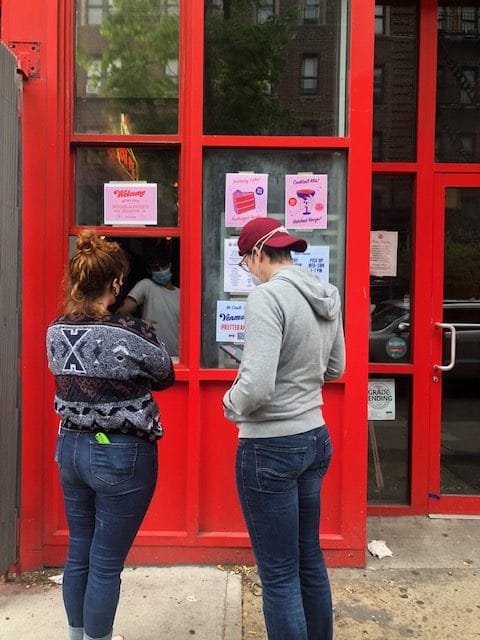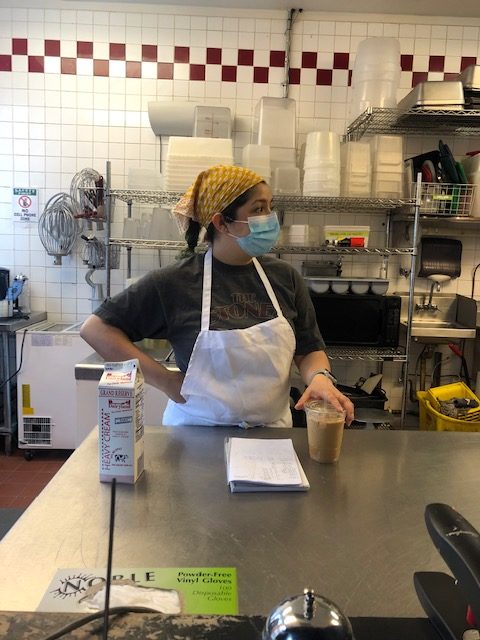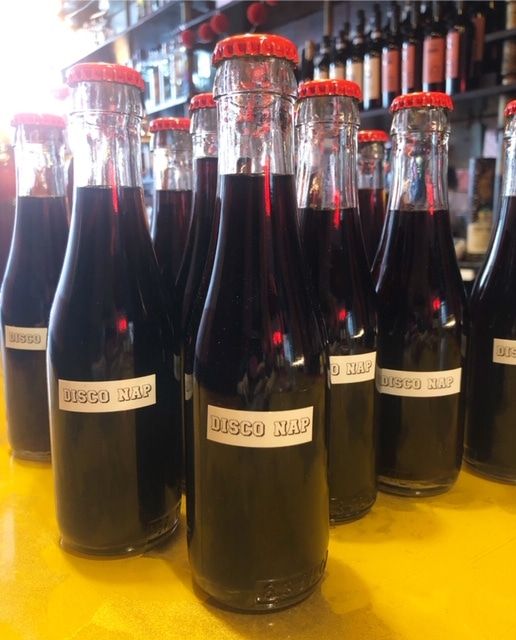Butter & Scotch is Back, But Different for Now

When the COVID-19 pandemic first began hitting New York City, Keavy Landreth decided to close her bakery bar Butter & Scotch, both for the safety of her staff and her patrons. The bar was closed for more than two weeks, for owners Landreth and Allison Kave to make sure that no one was sick, and that they could pay their staff hazard pay for part-time work.
This turned out to be an extremely wise decision, as Landreth ended up showing all symptoms of the virus about eight days into the business’ closure.
“I wanted to fully close for 2 weeks, have everyone go home and make sure they didn’t have it, which was good. I ended up coming down with COVID about eight days after we closed down,” Landreth said. After waiting another three weeks, they made the decision to reopen for take-out window and delivery service.
Since then, the spot has surpassed their delivery and takeout limit every single day.

“The first week was insanity. We’ve never had that many orders before, and my phone, which notifies me every time we get an order, was fully lit for 24 hours,” Landreth said. The business has since hired a new customer support person to deal with issues on the ordering front.
Butter & Scotch is also one of the lucky businesses to have been approved for a PPP loan, and they’re hopeful that the deadline to spend the money will be extended past eight weeks as originally planned. They applied about a month ago and have just received the funds.
The demand far surpasses the orders they are putting out now, but Landreth says that they won’t increase availability for a while, as they are only allowing two employees inside the small space at a time.
“You’re responsible for these people, and I think mentally this helps a lot of your employees,” Landreth said of the restriction to staff. Even so, Butter & Scotch was able to rehire more than half of their original employees.
The future of the business, however, is reliant on several things, Landreth says, including their ability to renegotiate rent.
“This new business model is working, and we’ve been getting a lot of orders, but it’s still not enough to pay the rent that we’d been paying. We’re doing okay because the staff is cut in half and we’re currently not paying our rent, but it’s really going to depend on if I can get [the landlords] to negotiate a new rent price due to the circumstances,” Landreth said. “But, they have not been accommodating whatsoever.”
Landreth also says that she won’t feel comfortable reopening fully, even if the state allows them to, until there is a vaccine in place.

“I can’t imagine taking someone’s temperature before they walked into the bar. I can’t imagine doing that for any hospitality industry. I know that people are going to have to, but it sets a tone,” Landreth says. Both this and the factor of the bar’s small space would prevent her from opening in the way that she would want.
Landreth sees the future of bars and restaurants depending on innovation— cocktail and wine subscriptions, as well as possible offerings for at-home dinner parties.
“When restaurants open up, I just don’t think it’s going to be the warm, friendly experience that you want,” she added.

She also sees the potential for a mass exodus of New York restaurants, especially now that liability laws are in place to protect owners from landlord retribution.
In the meantime, she says, remember to have patience and be kind to those in the industry that are serving you.
“I hope, hope, hope that we can get a vaccine, and a couple of years down the road, we can all be sitting at the bar at our favorite restaurants,” Landreth said. Until then, order some cake.




